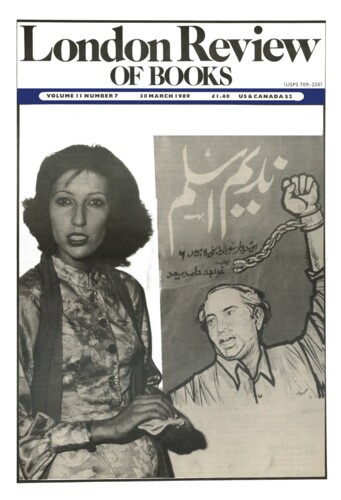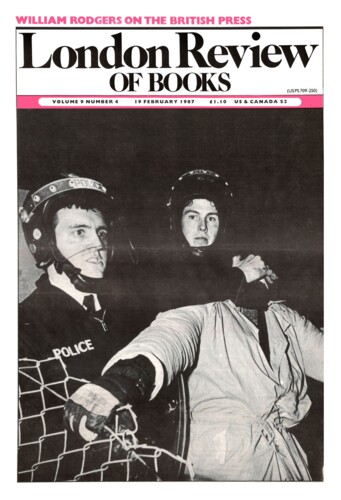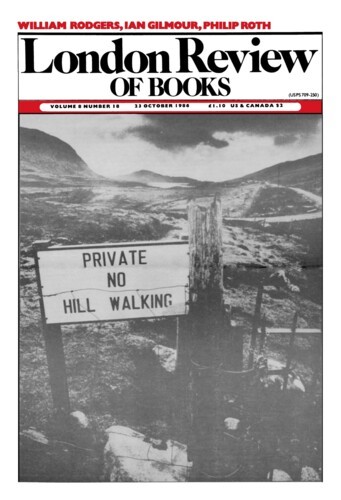Babylon
William Rodgers, 30 March 1989
Thirteen years ago, in the late afternoon of an April day, I was summoned across Whitehall from my office in the Ministry of Defence to see the Home Secretary. Roy Jenkins rose from his chair and said: ‘Well, it’s all over, Callaghan is appointing Crosland.’ He nodded to a handwritten envelope addressed to the President of the French Republic. I knew that it contained a letter declaring his willingness to become President of the European community. We talked for a while, and I sadly conceded that my resistance to his departure from British politics was at an end. A little before six o’clock we watched the television news for public confirmation of events. There it was. Anthony Crosland had become Foreign Secretary – the only job that would have kept Roy Jenkins away from Brussels and the Berlaymont.’



